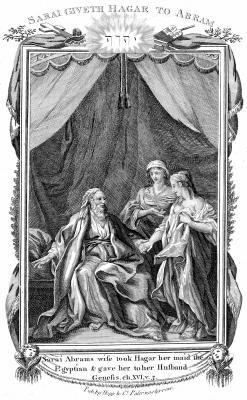Do Muslims Believe in the Old Testament?

The Old Testament, also known as the Hebrew Bible, has an ambiguous status in Islam. On the one hand, the Quran teaches that God sent divine revelation through a series of prophets mentioned in the Hebrew scriptures, including Abraham, Moses and David. However, Muslim scholars also consider the Old Testament to be untrustworthy, inasmuch as they are corrupted versions of texts that are now lost.
Tawrat and Zabur
The Quran makes multiple references to incidents in the Hebrew Scriptures, such as the creation of Adam, Noah’s flood, God’s covenant with Abraham and God giving his revelation to Moses on Mount Sinai. In making these references the Quran does not wholly embrace the Hebrew Scriptures, but rather speaks of the divine revelation contained in such sacred texts as the Tawrat and Zabur. As “The Encyclopaedia of the Quran” observes, “Tawrat” is commonly viewed as an early Arabic word for the Torah, which can refer narrowly to the first five books of the Hebrew Bible as well as the Hebrew scriptures in their entirety. Zabur are “songs,” a reference to the Psalms attributed to David.
Translation and Trustworthiness
Although Jews believe that God gave the people of Israel divine revelation, Muslims believe the Quran to be superior in several ways. First, even the original revelations in the Tawrat, Zabur and other Hebrew scriptures were imperfect, inasmuch as they were translated into Hebrew rather than being handed down in the original Arabic as originally written by God. Moreover, the Quran has superseded the divine revelations transmitted to the ancient Hebrew prophets, replacing them with the pure and complete revelation of God’s perfect book. The most serious issue with the Old Testament, however, is that Muslims believe that it is not identical with the original, now lost revelations. Rather, it is a corrupted version that mixes revealed truth with misleading falsehoods.
Abraham and Monotheism
According to Muslim scholars interpreting the Quran in conjunction with the Hadith, the collected sayings and incidents from the life of Muhammad, the Old Testament in its present form is an untrustworthy mix of divine revelation and human invention. Of particular concern is the corruption of God’s universal call to obedience with a message that singles out Israel as God’s exclusive people and reinforces their special status with laws not commanded by God. Against this narrow perspective Muslim scholars point to God’s word to the prophet Ibrahim (Abraham), who is the common lineal and spiritual father of both the Israelites and Arabs. In recognition of this biblical prophet’s historic significance, the Quran describes the true monotheistic faith as the religion of Abraham.
Prophecies of Muhammad
Another significant issue in regard to the Old Testament is the extent to which it has preserved the lost original texts’ prophecies of the coming of Muhammad, the ultimate messenger of God. Some Muslim scholars fault the compilers of the Old Testament for removing or obscuring the Hebrew prophets’ predictions pertaining to Muhammad. There is also an extensive tradition of Muslim scholarship identifying prophecies of Muhammad that are in the Old Testament but not recognized by Jewish scholars. For example, Deuteronomy 18:18, which states that God will raise up a prophet like Moses from among “your brothers,” is viewed as a prediction that God will raise up Muhammad from the Arabs, who are, like the Israelites, Abraham’s descendants.
